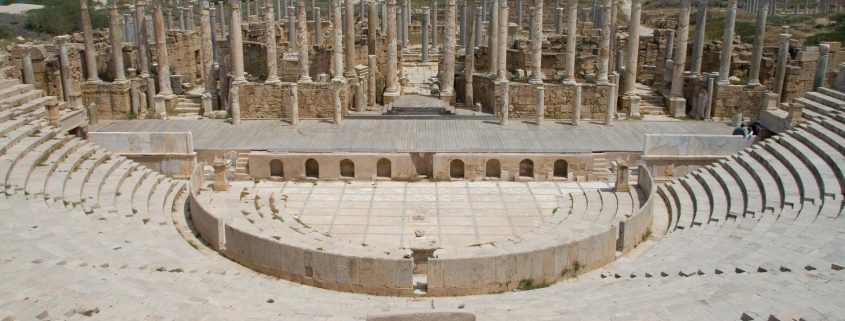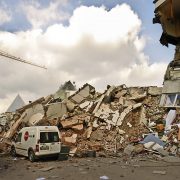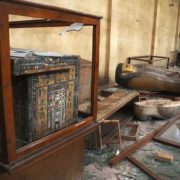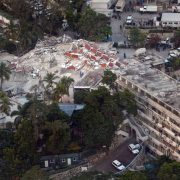Blue Shield statement – Libya
Blue Shield International udsendte den 14. marts 2011 følgende erklæring om situationen i Libyen:
Following the recent events in Libya, the Blue Shield expresses its great concern about the safeguarding of the country’s invaluable cultural heritage amid the existing turmoil. The Blue Shield deplores the suffering and loss of life this conflict has imposed on the Libyan population.
Between 1982 and 1986, five sites in this vast country, bearing witness to the rise and fall of sophisticated cultures stretching from prehistory to Islamic civilization, were chosen to become part of the UNESCO World Heritage List. Three of these sites, Cyrene, Leptis Magna and Sabratha, are evidence of the civilization that flourished in Libya during the Punic, Greek and Roman eras. The prehistoric site of Tadrart Acacus and the ancient city of Ghadames are proof of the importance of heritage sites in this territory.
The ongoing armed conflict in Libya gives reason for concern, not only amongst academics but for everybody concerned with the preservation of cultural heritage, about the vulnerability of cultural institutions, sites and monuments. Especially aerial bombardments and artillery pose a grave danger to fragile cultural sites. Any loss of Libyan cultural property would seriously impoverish the collective memory of mankind.
Libya is a party to the 1954 Hague Convention for the Protection of Cultural Property in the Event of Armed Conflict since 1957, and became a party to the Second Protocol of this convention in 2001. The Hague Convention deals with responsibilities regarding cultural heritage in times of armed conflict and the danger of its misuse. The Blue Shield is appealing to all parties involved to respect the stipulations of the Convention and to protect our world cultural heritage.
The Blue Shield mission is “to work to protect the world’s cultural heritage threatened by armed conflict, natural and man‐made disasters”. For this reason it places the expertise and network of its member organizations at the disposal of their colleagues working in Libya to support their work in protecting the country’s heritage, and if necessary, for subsequent recovery, restoration and repair measures.
The member organizations of the Blue Shield are currently liaising with colleagues in Libya to obtain further information on both the situation and on the possible needs and types of help required so as to mobilize their networks accordingly.
Se den originale erklæring: Blue Shield Statement on Libya











